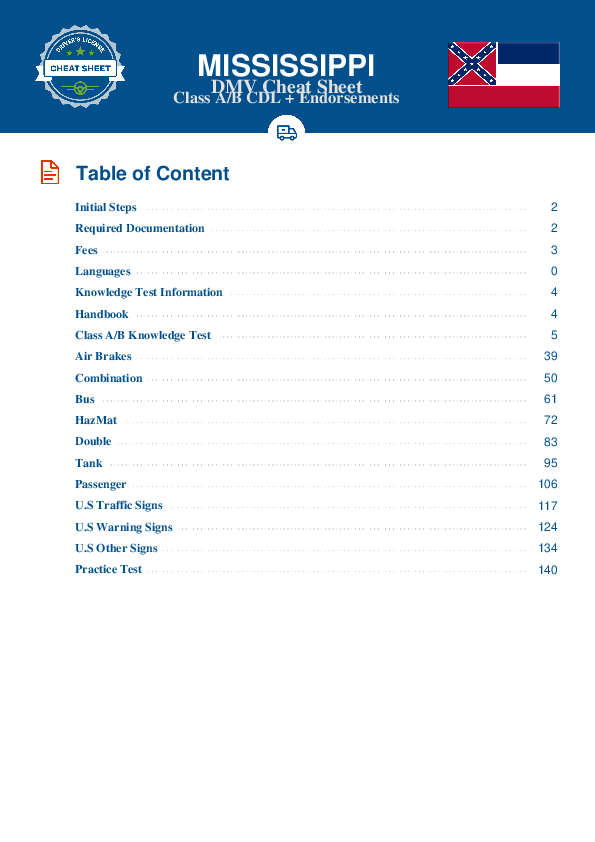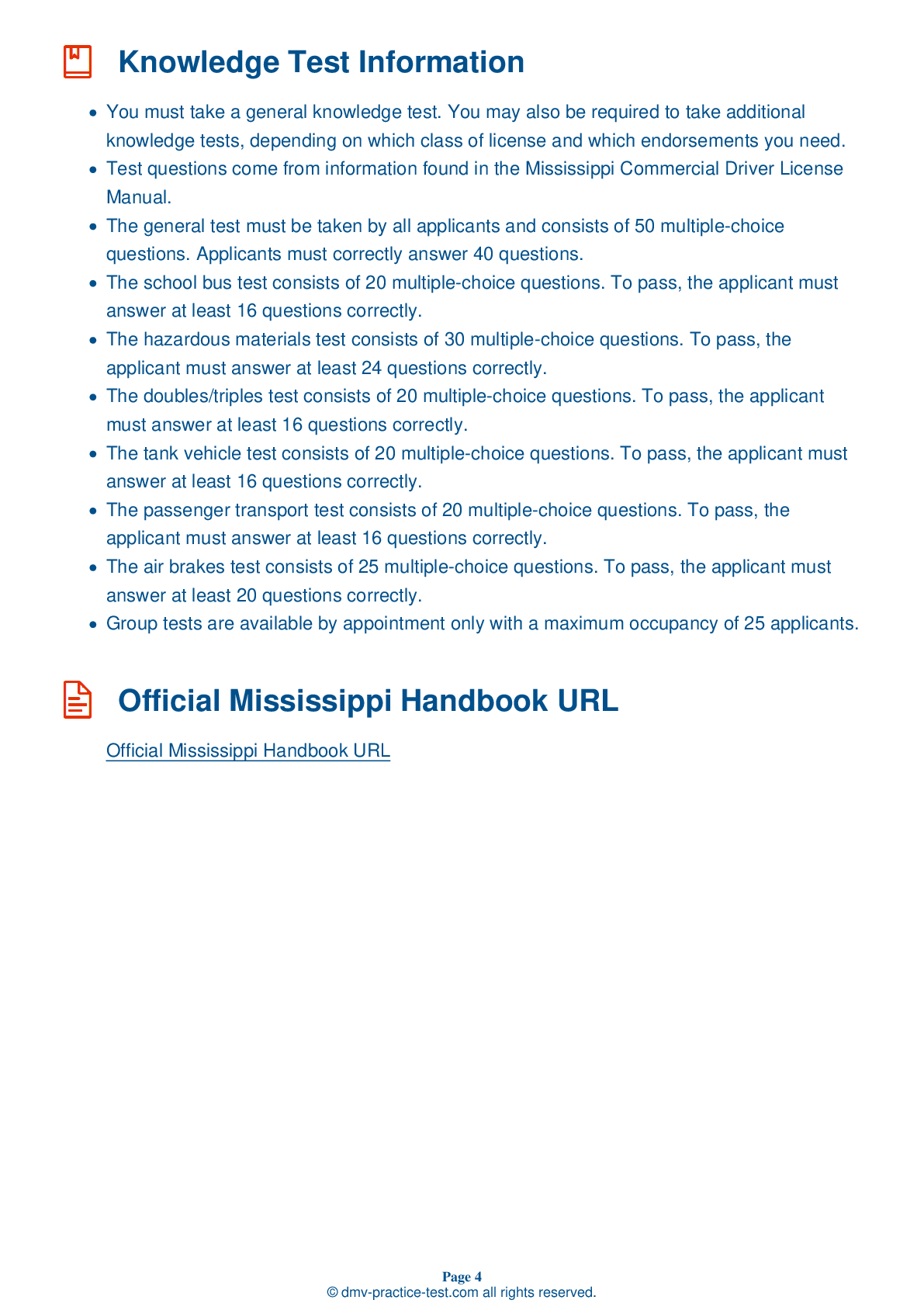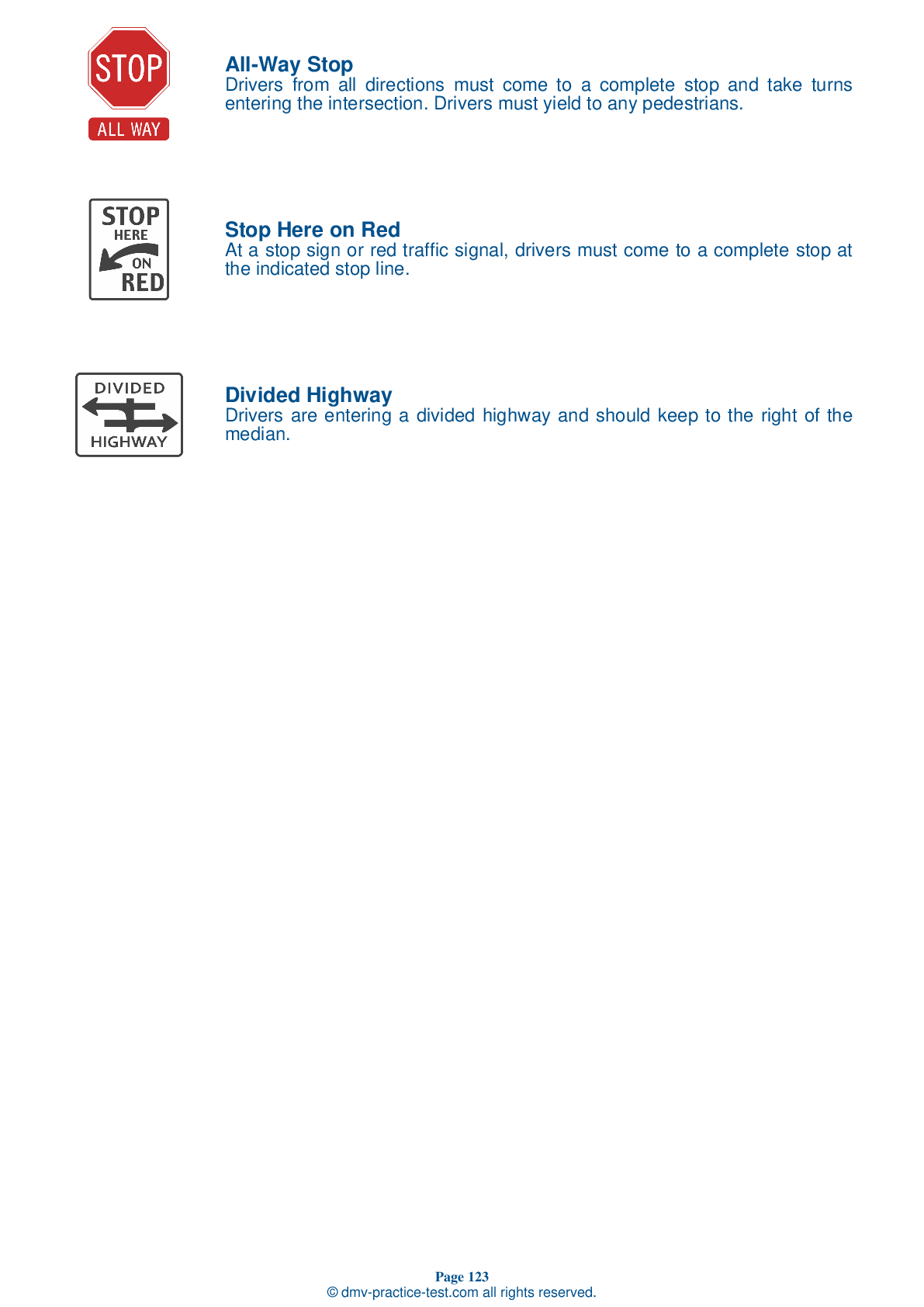Bus Driver Testing | Mississippi 2026 #1 Page 2 of 3
Train for FREE online with our MS bus CDL test. The official exam test consists of several obligatory parts, with all of them checking your knowledge of different blocks of road rules. If you need to obtain a license in Mississippi in 2026, learn how to become a bus driver and then practice as much as possible. Free sample tests published on our website will help you check and improve your knowledge and boost your grades. Please bear in mind that DMV requirements for a bus driver may vary from state to state.
8 . If your tractor is equipped with ABS but your trailer is not, the ABS:
In a tractor-trailer combination, if the tractor is equipped with an Anti-Lock Braking System (ABS) but the trailer is not, the ABS will still improve the driver's steering control. The driver should keep an eye on the trailer and let up on the brakes if the trailer begins to swing out.
9 . When parking, you should not use the parking brake if:
If your brakes are hot after coming down a steep grade, you should not use your parking brake when parking. Let your brakes cool before applying the parking brake or risk damaging the brakes.
10 . To use the stab braking method, you should:
The stab braking method for emergency stops involves fully applying the brakes until they lock up. The brakes are then released until the wheels start rolling, and then the process is repeated.
11 . If using air tanks with manually operated drains, how often should you drain the tanks?
In an air brake system with manually operated drains, the tanks should be drained at the end of each day of driving.
12 . Bracing is used to:
Blocking and bracing are used to prevent cargo from shifting in transit. Blocking is used in the front, in the back, and on the sides of a piece of cargo to prevent movement. Bracing prevents movement by reaching from the upper portion of a piece of cargo to the floor and sides of the cargo compartment.
13 . During a basic vehicle control skills test, you may be asked to:
Maneuvers that may be included in the basic vehicle control skills test include straight line backing, offset back/right parking, offset back/left parking, driver side parallel parking, conventional parallel parking, and alley docking.
14 . When arriving at a destination, it is best to remind exiting passengers to take their carry-on bags with them:
Before a bus is brought to a complete stop at its destination, it is best for the driver to remind exiting passengers to take their carry-ons with them.
See the exact questions that will be on the 2026 Mississippi DMV exam.
99.2% of people who use the cheat sheet pass the FIRST TIME
Lillian MCcranie explains how our CDL study guide was helpful in passing the exam and recommends it to everyone.
Cameron tells us how he purchased the CDL exam, and found it to be a useful tool which helped him pass the exam and find a job.



